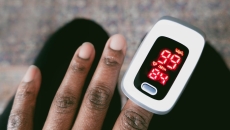Patient safety
Inequities that already exist in the healthcare system, and may be amplified by LLMs, could be addressed through the proving ground of artificial intelligence assurance labs, according to Brigham Hyde, CEO of Atropos Health.
A private healthcare provider in India went from manual to automated patient monitoring.
The U.S. Food and Drug Administration has published updated draft recommendations to help improve the performance of pulse oximeters across skin tones.
The safety nonprofit says artificial intelligence models that aren't properly evaluated and deployed are a big concern for 2025. Others include home health technology and hospital infusion system vulnerabilities.
The hospital is the first in Indonesia to adopt an automated EWS system.
A pilot validation study found that the AI helped hasten case reviews and data analysis and determine the necessity of antibiotic use.
The research shows how data integrity issues at every stage – training, model development, publication, implementation – can adversely impact patient outcomes, say clinicians at Yale School of Medicine.
The third extension of pandemic-era telehealth flexibilities through the end of next year will give the agencies time to promulgate final regulations and providers time to comply, the agencies said.
The former GOP congressman from Georgia has served as a U.S. Navy chaplain and is a colonel in the Air Force Reserve. He would inherit a major EHR modernization initiative, currently paused but slated to restart in 2025, among other IT imperatives.
The U.S. Department of Homeland Security sees three areas of concern as artificial intelligence is used across critical infrastructure sectors: attacks using AI, attacks targeting AI systems and design, and implementation failures.








